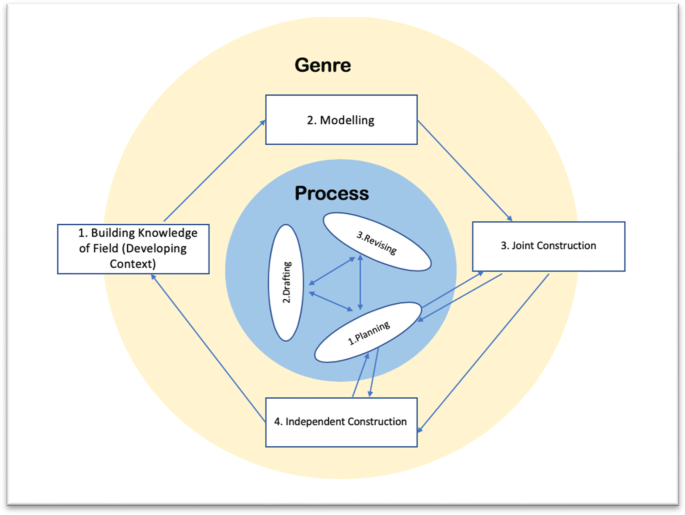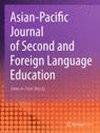在高等教育的第二语言写作中实施过程体裁法、反馈和技术
IF 2.2
Q2 EDUCATION & EDUCATIONAL RESEARCH
Asian-Pacific Journal of Second and Foreign Language Education
Pub Date : 2023-11-01
DOI:10.1186/s40862-023-00211-7
引用次数: 0
摘要
过程类型法、不同的反馈类型和技术整合已被证明可以提高学生的写作技能,但关于这三个变量在写作教学中如何相互作用的研究很少。本研究采用准实验设计和序贯解释设计,将过程类型法、教师与同伴口头及书面反馈、在线技术平台整合到泰国一所大学的英语写作课程中。实验组接受干预,而对照组接受标准的写作指导,包括论文、老师和同伴反馈。测试前后的写作、形成性写作作业、老师、同伴、口头和书面反馈调查以及半结构化访谈是评估工具。定量数据的检验采用描述性统计、Wilcoxon sign Rank检验、Mann-Whitney-Wilcoxon检验、Spearman相关和Kendall-Theil回归。专题分析审查了定性数据。实验组的后测比前测得分更高,这表明他们更重视教师的反馈而不是其他类型的反馈。任务反应和词汇资源表现出实质性的进步,尽管连贯和衔接、语法范围和准确性没有。除任务反应性外,对照组在测试前和测试后得分均无显著变化。在实验组中,书面反馈与测试后得分和某些测试后标准显著相关。研究结果强调了过程体裁方法、持续反馈和技术对提高学生写作的重要性。本文章由计算机程序翻译,如有差异,请以英文原文为准。

Implementing process-genre approach, feedback, and technology in L2 writing in higher education
Abstract The process-genre approach, varied feedback types, and technology integration have been shown to improve students' writing skills, but there is little research on how these three variables interact when implemented together in writing instruction. This study applied a quasi-experimental design with a sequential explanatory design to integrate the process-genre approach, teacher and peer oral and written feedback, and an online technology platform into a Thai university's English writing course. The experimental group received interventions, whereas the control group received standard writing instruction with papers and teacher and peer feedback. Writing pre- and post-tests, formative writing assignments, teacher, peer, oral, and written feedback surveys, and semi-structured interviews were the evaluation instruments. Descriptive statistics, the Wilcoxon Signed Rank Test, the Mann–Whitney–Wilcoxon test, Spearman's correlation, and Kendall–Theil regression were used to examine quantitative data. A thematic analysis examined qualitative data. The experimental group scored higher on post-tests than pre-tests, indicating that they valued instructor feedback more than other types of feedback. Task response and lexical resource showed substantial gains, although coherence and cohesion, grammatical range, and accuracy did not. The control group had no significant changes in pre- and post-test scores except for task responsiveness. Written feedback was significantly associated with post-test scores and certain post-test criteria in the experimental group. The findings emphasize the importance of a process-genre approach, constant feedback, and technology to improve students' writing.
求助全文
通过发布文献求助,成功后即可免费获取论文全文。
去求助
来源期刊

Asian-Pacific Journal of Second and Foreign Language Education
Arts and Humanities-Language and Linguistics
CiteScore
2.90
自引率
5.60%
发文量
40
审稿时长
5 weeks
 求助内容:
求助内容: 应助结果提醒方式:
应助结果提醒方式:


